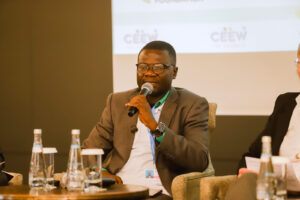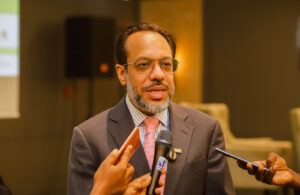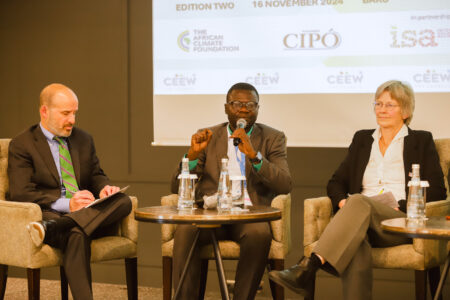As part of its climate resilience strategy, the Jospong Group has already commenced upgrading its waste management infrastructure facilities to better withstand the ‘stresses of climate change.’
According to the group, these measures, already in motion, include the upgrading of a number of its recycling plants, sewerage systems, solid and liquid waste facilities.
The General Manager of the Jospong Group’s Green Transition Office, Dr. Glenn Kwabena Gyimah, made this revelation on the sidelines of a Leaders’ Dialogue at the United Nations Framework Convention on Climate Change (COP29), currently underway in Baku, Azerbaijan, on Saturday, November 16, 2024.
The Leaders’ Dialogue, organised by the Council on Energy, Environment and Water (CEEW) for the second time since COP28 in Dubai, featured 20 speakers from 13 countries across all six populated continents.
The dialogue focused on critical issues, including energy transition pathways for emerging markets and developing economies, addressing the 700 million people without electricity and 2 billion without clean cooking facilities, and bridging the gap between global clean energy investment and regional demands.
Dr. Gyimah said the Jospong Group was working with a sense of urgency to actively reduce fossil fuel consumption.
As we speak, we are transitioning from internal combustion engines to electrifying our entire fleet of 1,000 waste trucks,” he disclosed.

He elaborated that retrofitting these waste management trucks to run on electricity will significantly contribute to reducing Ghana’s fossil fuel consumption.
“This will also promote energy efficiency nationwide,” he added.
To achieve this, he noted, ‘We’re deploying mini-grid solar systems and charging stations to power our transitioning fleet, completely eliminating fossil fuel reliance.
Dr. Gyimah highlighted another key strategy by Jospong Group to combat climate change: incorporating climate-smart agriculture systems.
He explained that their approach prioritises soil health, essential for resilient agricultural systems and enhanced soil carbon storage.
He said Jospong Group, already a player in the agriculture sector, recognises that robust agricultural systems are vital for achieving food security.
“So as a group, we have a company known as Asian African Consortium (AAC)and with that we are deploying the alternative wet and dry (AWD) system and technology to the growing of rice. In that case we reduce flooding on the surface of the planting process,” he said.
He underscored the significance of diversification, adding that Jospong Group has diversified its source of raw materials “so much that we are everywhere in the world.”
“Let me say, for instance, that relying on one source of raw materials is not the best way to go. What if that supplier gets hit?” he quizzed.
The Chief Executive Officer of the CEEW, a leading climate think tank headquartered in New Delhi, India Dr. Arunabha Ghosh, stressed the urgent need to address the global water crisis, promote equitable water partnerships, and value water as a critical resource.

We must introduce a circular economy of water and recognise the importance of natural ecosystems,” he stressed.
He indicated the importance of building resilience against climate-related disasters and risks, and securing the future of green industries, including minerals, solar panels, and green hydrogen.
“The goal is to move from ambition to action, from action to acceleration, and increase trust,” Dr. Ghosh said.
“We need to create a virtuous cycle of ambition, action, and acceleration to address the climate crisis,” he urged.
Dr. Ghosh expressed optimism that the third edition of the Leaders’ Dialogue, to be held at COP30 in Brazil in 2025, will showcase impactful success stories and demonstrate progress in creating new partnerships, investment plans, and business relationships.
